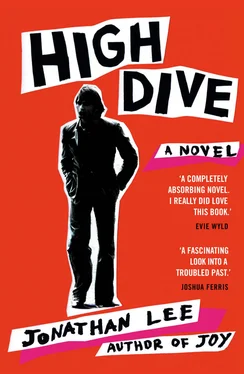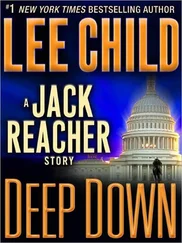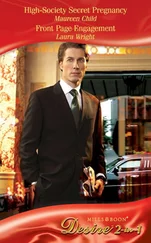There was a song certain girls sang while watching him take his shabby grammar school to the National Championships Finals in three different sports. It was a simple song, not much imagination to it, and it followed the tune of Fats Domino’s ‘Ain’t That a Shame’. ‘Ain’t That The Finch’ they’d cry after the ball had left his boot and crashed past the keeper; ‘Ain’t That The Finch’. Sometimes he’d hear a depthless, muzak version of the same anthem in the playground, walking between buildings, crossing the concrete, pausing to pull up his socks. He’d look up and see girls from the school opposite, fingers clawed into the fence. They were singing to him, serenading him, fighting off impending fits of giggles. Once they recovered from these giggles one of them would generally ask if he was going to be at the Electric House come Friday. Demonstrating the unflustered ease that only the most adored of boys could afford, untouched by the super-abundance of love which met his every move, he looked at them and unleashed one of his trademark Shrugging Smiles. A good-natured smile. An excellent shrug. ‘Maybe,’ he’d say.
They nodded slowly, like he’d told them the future.
The Electric House was a local landmark around which the teen population of Brighton carried out the deadly serious business of hanging around. They hung around chatting. They hung around drinking. They hung around practising their kissing. They spent a lot of time pretending to inhale, or coughing. If you had a blind date with a girl they’d arrange to meet you at the Electric and it was a tradition of the time that they’d tell you the exact section of pavement on which you should stand at the designated hour, often referencing chalk marks set down specifically for that purpose: an ‘X’ or an intimidating tadpole squiggle. Seldom did they keep him waiting long. It was a beautiful thing: his luck, his ability; the way the world moved to his tune.
On Christmas Eve, behind the changing rooms of the big drained Black Rock swimming pool, Angela Hebbethwaite opens her coat, a coat with shoulders covered in snow, and lifts up her several jumpers, permitting him to touch her breast. The left one, the soft floury texture of it. With wordless joy he fondles. The best Christmas present he’s ever had.
‘I’m going to be the next Don Revie,’ he tells Angela.
‘I believe in you,’ she says. ‘You’re quite tall.’
She tucks her boob back into her bra. A drunk Santa staggers past. They listen to Santa having a wee against the wall.
At this time there were definitely one or two friends and family members who predicted his downfall. It was said that by pursuing so many different sports to County level, then England Under 16 level, he would sacrifice his studies. It was also said by his soon-to-die Auntie Janet (appendix, Wandsworth) that it was ‘an inevitability’ that once The Finch hit sixteen the extraordinary upward curve of athletic achievement that had marked his life to date would begin to level off. Even his mother appeared ready to accept elements of this hypothesis. With her constant curbing of expectations and reminders that ‘life follows complex patterns’, she seemed to agree that a boy as bafflingly popular and successful as her son would, at some point on the perilous path to adulthood, blink and lose his way. If his father pushed her to give reasons for this lack of faith she sometimes cited, with the stiff air of someone called to give evidence, Philip’s occasional tendency to speak of himself in the third person.
The Finch was just a persona, a character other people had made up. It saddened him that his mother didn’t seem to understand.
In response to what he couldn’t help but see as doom-mongering by the senior females in his family, he did reasonably well in most of his exams. It was essays that were his undoing, but he got extra help from Miss House and Mr Phillips in English and History. He worked hard — hard- ish — and was in the unusual position of being considered a role model by both pupils and teachers, so it was perhaps no surprise when he was appointed, following an internal school process which he liked to think of as democratic, as Head Prefect. People told him he fulfilled the role with composure, style and a stringent sense of fairness, and he shrugged off their praise, neither emboldened nor embarrassed, his only concession to immodesty being his readiness to make a detailed mental note of their words, remembering certain shapely turns of phrase or terms of praise in case they came in handy at a later date. A job application. A self-awareness test. Stuff like that.
His dad was a local postman of nine years’ experience, a man with a tendency to sweat in all seasons, and having his son appointed to the role of Head Prefect seemed to give him more vicarious pleasure than any of the pursuits on track and field ever had. This was confusing, given how much emphasis the family had previously placed on sport.
Soon after the prefect appointment letter from the headmaster arrived he glimpsed, one night, through a crack in the kitchen door, his father sitting at the scuffed pine table on which they always ate their family meals. The memory of this moment is clear even through the veil of drugs. Everything quiet and well lit. His father alone and holding the document in both hands. His lips were moving minutely as he studied it.
Several days later, The Finch’s father was chatting to the Carrs. The Carrs were neighbours with whom the Finch family shared a small front garden, a love of films, and absolutely nothing else. On this particular day, as The Finch and his father stood in the driveway and Mrs Carr clutched her garden shears, Mr Carr asked Mr Finch what being Head Prefect at a school like Varndean actually involved. It was astonishing to witness the manner in which his father — known throughout the village as being punctual, taciturn — responded to this question. He stood tall. He draped one warm arm across his boy’s shoulders. He relayed, with faultless fluency, the entire inventory of responsibilities which came with the role. He had memorised the letter verbatim.
Did they have money? Not much, not really, but always a penny for an iced bun. You could get it delivered with the milk each morning. He was never one of the unwashed kids at school who wore plimsolls even in winter or was always being sent to the nit nurse under suspicion of infestation. Sunday mornings at the Sunday school, drawing miracles and parables on unevenly sized pieces of paper, wondering what the point of prayer was, and then there would be home-made lemonade in the church hall, bitter zest that clung to your gums, and wonderfully involved periods of paper-aeroplane construction, games that made all the worship stuff worthwhile, and after that everyone would stop at the old air-raid shelters on the way home, jumping off them in increasingly complex ways, touching ankles twice or thrice, cutting their hands and grazing their knees, all to summon some brief blaze of adrenalin to resurrect their lives from the stupor Father Simon’s words had induced. On one such air-raid-shelter stunt he landed awkwardly, feeling the shock that normally crept up his shins advancing further than before, all the way up to his right knee. Pain grinding there. Pain sending him home in stages, limping and pausing, limping and blinking, limping and hoping he’d done himself no permanent harm.
Twinges of pain would resurface when, in his final summer at the school, he donned the Varndean athletics vest for the very last time — but only on the home straight, and it was nothing a post-race bag of ice could not correct. He still won the 200 by a clear two seconds.
His cousin Elizabeth was into gymnastics. Seeing her do a cartwheel during the family performance segment of Christmas Day celebrations, he asked his parents if he could join one of her classes. His father and mother discussed this over subsequent weeks and then informed him that they loved him unconditionally, regardless of whatever his preferences might be. What exactly did they mean? He could go to gymnastics, yes.
Читать дальше












